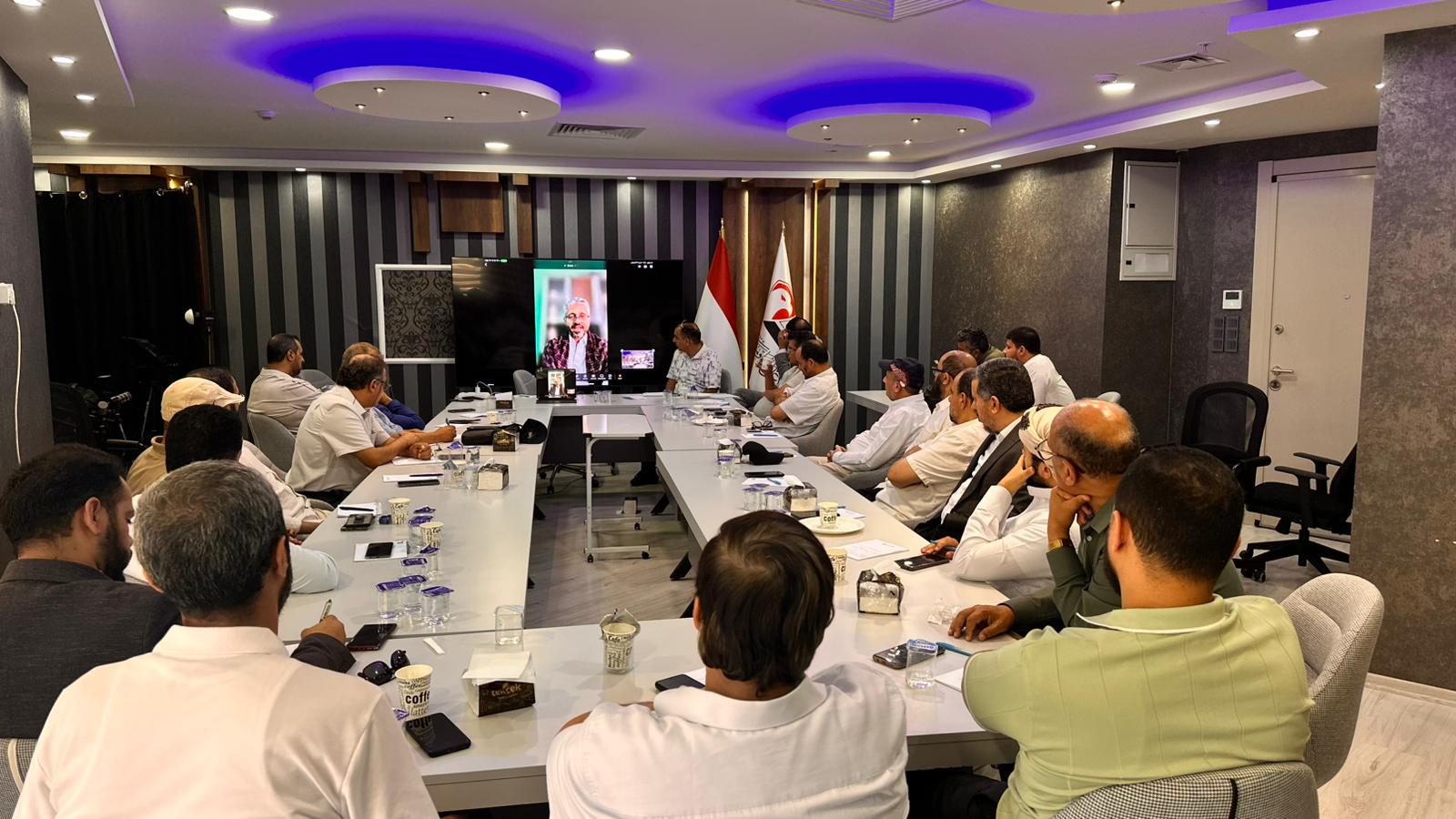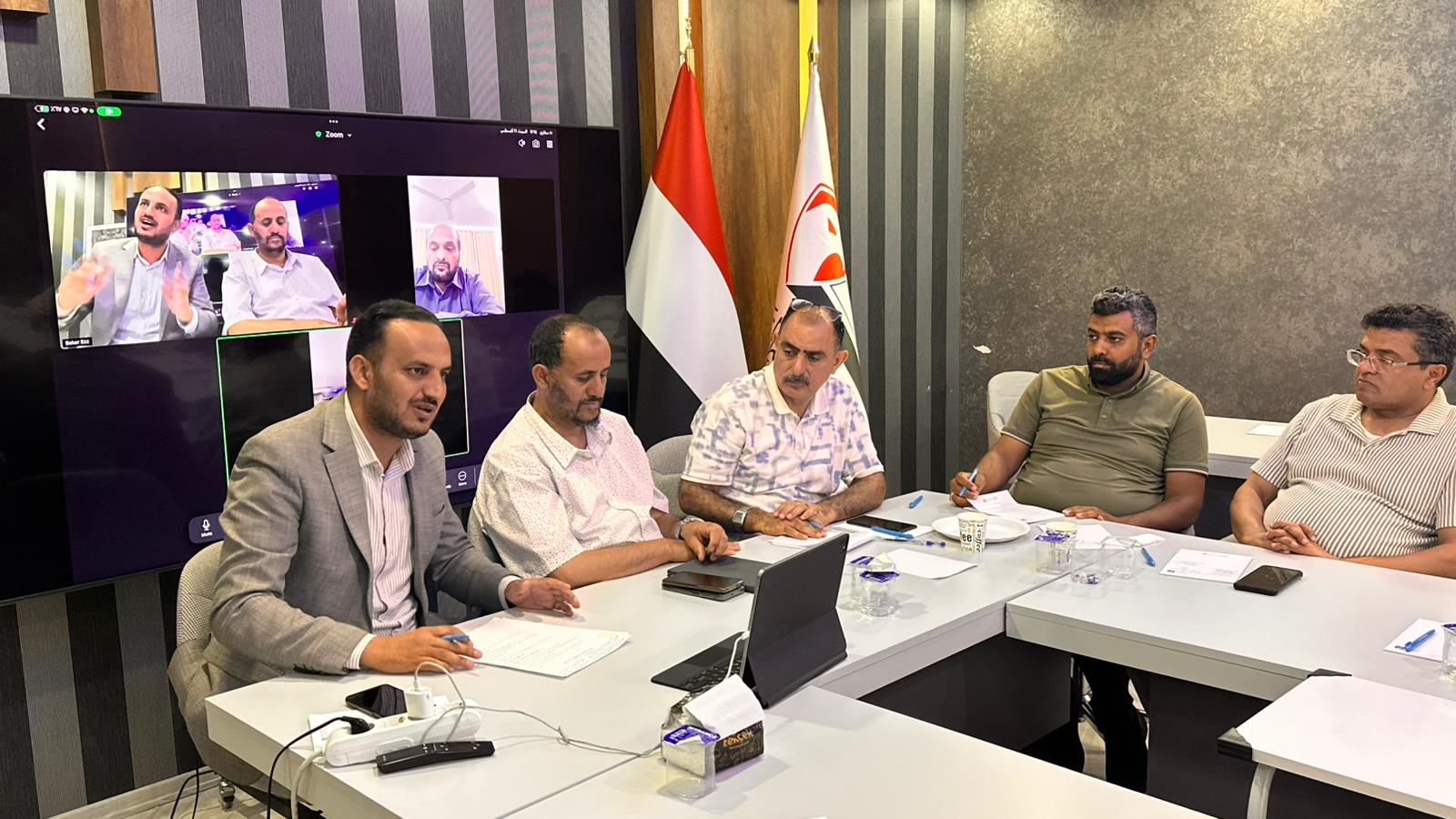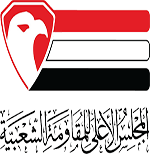Academics and politicians emphasize the importance of supporting the popular resistance
2025-08-17_1200x800.jpeg)
Academics and politicians emphasize the importance of supporting the popular resistance and stress the revolutionary dimension of the academic message.
Yemen - Exclusive :
An academic and political symposium held today, Saturday, emphasized the pivotal role of Yemeni academics, both at home and abroad, in consolidating the resistance option, advancing the mission of restoring state influence, and ending the challenges facing Yemenis over the past eleven years of coup and war.
The symposium, organized by the Supreme Council of the Popular Resistance in cooperation with the Union of Yemeni Academics Abroad, included a number of university professors from various disciplines, along with politicians and resistance leaders from inside and outside Yemen. Participants discussed the role that academics and active social groups must play in supporting the resistance.
At the beginning of the symposium, the head of the Supreme Council of the Popular Resistance, Sheikh Hamoud Saeed Al-Mikhlafi, addressed the participants, extending his greetings and appreciation to the academics, whom he described as beacons of thought and banners of awareness. He noted their significant influence in raising awareness of the Yemeni issue and raising awareness of it at both the local and international levels, emphasizing that our national cause requires reason and measured speech, which are the true weapons academics possess.
Al-Mikhlafi added that every academic is a resistance soldier, whose weapon is his pen, his knowledge, and his arguments, all of which he places at the service of Yemen to restore its state and end the coup.
He emphasized the comprehensive role played by academics, both in the field of theoretical and applied knowledge, and the potential this role entails in providing insights and visions for rebuilding the nation after the war and liberation.
Two working papers were presented during the symposium: the first by Dr. Abdulghani bin Ali Al-Shamrani, Secretary-General of the Yemeni Academics Union and Professor of Economics and Islamic Finance, and the second by Dr. Abdulmajeed Akrout, a member of the Association of Muslim Scholars and an academic researcher in the field of economics.
Al-Shamrani's paper focused on the social responsibility of academics, reviewing their tools of influence, which include theoretical studies of societal phenomena and contributing to developing solutions. He also highlighted the academic duties required by the current phase of Yemen's history, where academics must engage in conducting analytical studies on the impact of militias on security, the economy, society, and the state, and offer scientific solutions to address the multiple crises resulting from the coup and conflict. Foremost among these are the political, material, cognitive, and scientific reconstruction of the state, criticism of Houthi ideology and its sectarian and takfiri approaches, the promotion of moderate, peaceful discourse, and the preservation of a shared national identity.
Dr. Akrout's paper addressed the appropriate ways to employ academic expertise in supporting liberation and state-building. He emphasized the importance of the academic role in times of conflict, given academics' ability to conduct in-depth analysis, build an enlightened national awareness, and produce national knowledge.
Akrout listed a number of potential contributions of academics to the liberation and reconstruction process, most notably contributing to building state institutions, achieving transitional justice and national reconciliation, through activating advisory and research missions, developing academic curricula, and designing training and qualification programs in various fields.
The symposium witnessed in-depth discussions, all of which emphasized the importance of resistance in protecting the national choices of the people. At the same time, they emphasized the need to embody the revolutionary dimension in academic and political roles and establish models of resistance work that will return Yemen to the path of restoring the state on nationally and internationally agreed-upon foundations.
The symposium concluded with a number of measures, most notably the formation of joint working groups to frame the process. Academic and political action in line with the requirements and obligations of mobilizing resistance action.


